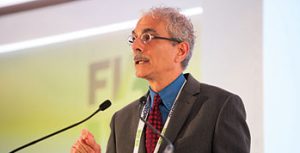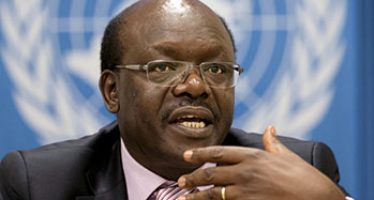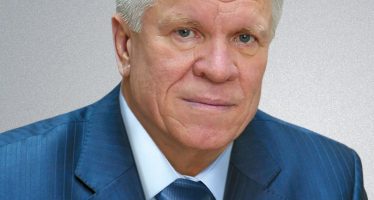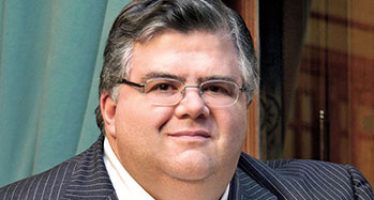Paul P Andrews: Keeping Up with Fast-Changing Equity Markets

Paul P Andrews Secretary-General, IOSCO (Int. Org. of Securities Commissions)
The second annual World Investor Week (WIW) kicked off early October with a global initiative to improve the education and protection of investors.
Regulators, exchanges, investor associations, and other stakeholders in more than 80 countries joined forces to launch a series of educational campaigns aimed primarily at small investors. The event also offered an opportunity to advocate for the introduction of measures that shield capital market participants against unfair practices.
World Investor Week is organised by the International Organisation of Securities Commissions (IOSCO), the Madrid-based entity founded in 1985 to represent the world’s securities regulators. IOSCO, among others, is charged with reducing systemic risk by developing and setting regulation. The organisation also helps stock exchanges deal with technology and maintains a framework for the monitoring of cross-border and intra-market investments.
According to IOSCO Secretary-General Paul P Andrews, one of the organisation’s main jobs is to help investors manage their capital in a world that is increasingly interconnected – and changing. Rapid advances in technology not only offer new opportunities, but also add complexity to a market already difficult to navigate for most smaller investors. “We need to prepare retail investors for dealing with innovation,” he says.
This year’s WIW highlighted the joys and risks of online trading with a particular focus on cryptocurrencies and initial coin offerings (ICOs). In France, a national campaign broadcasted on radio sought to spread the concept of wise investing, with warnings about the dangers of following hypes or hunches, and recommendations on where and how to source dependable investment data. The spread of fake news and alt-truth is also a concern to financial editors and writers who battle fads that can potentially cause immeasurable harm to retail investors unable to separate fact from fiction.
In an event running parallel to WIW, World Financial Planning Day saw 26 organisations, representing some 175,000 certified financial planners, promote financial literacy and raise awareness about the long-term benefits of home ownership, retirement planning, and responsible investment practices.
Although IOSCO does not itself have a mandate to help members develop their equity markets, the organisation does offer advice and assistance to jurisdictions that seek to deepen and broaden them. The formula, says Andrews, is a relatively simple one: create a more complete market. “For example, institutional investors usually look for opportunities to hedge,” he says. “In order to attract this type of investor, it is necessary to have options, futures, and currency markets in place. These add-ons also help provide liquidity to the equity market. IOSCO is currently looking into ways of helping with the development of more complete markets in places that could benefit from them.”
Andrews points out that as a global setter of standards, his organisation is moving closer to similar entities such as the Basel Committee, the Financial Stability Board, and the Committee on Payments and Market Infrastructures in order to explore commonalities and address shared areas of concern such as, for example, cyber security. “There is no competitive advantage for different regulators – be they capital markets, banking, or infrastructure. We are all facing the same problems.”
IOSCO also seeks to engage the wider industry and accepts stock exchanges and stock market associations as non-voting affiliate members: “We can learn from each other. The industry brings a wealth of experience and knowledge which allows our organisation to explore new approaches and ideas.”
Andrews highlights the alignment between IOSCO and the World Federation of Exchanges (WFE) which helps the organisation keep tabs on financial innovation. This close co-operation allows IOSCO to meet new regulatory challenges and keep its capacity-building programmes up-to-date.
You may have an interest in also reading…
Mukhisa Kituyi: Growing Intra-African Trade Flows
What Africa sells to Africa has significantly more value than what the continent sells to the wider world – mostly
Oleksiy Vadaturskyy: A Business Legend of Modern Ukraine
NIBULON’s achievements in the global market and in complex investment projects are results of well-organised work, professionalism and long-term and
Agustín Carstens: Central Banker of Central Banks
In an unexpected volte-face, BIS (Bank of International Settlements) general manager Agustín Carstens agreed that cryptocurrencies do not, after all,


















































































